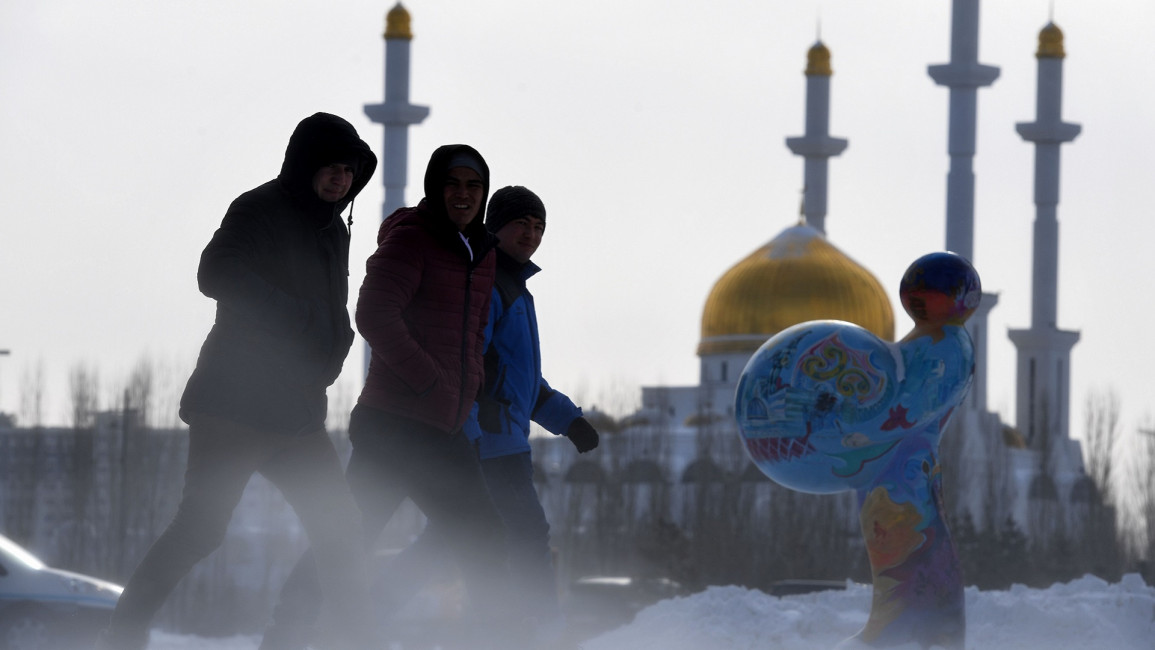All eyes on Astana as Syrian peace-talks to resume
Syrian rebel delegates met in Kazakhstan on Sunday ahead of their first talks with the government in a year in which the two sides hope to consolidate a ceasefire reached last month and deliver humanitarian aid.
The talks in the Kazakh capital, Astana, are sponsored by Russia, Iran and Turkey, and are the latest attempt to forge a political settlement to end the war.
The UN Syria envoy, Staffan de Mistura, is participating in the talks, which are to be followed by more political talks in February in Geneva. The new US administration is not directly involved because of the “immediate demands of the transition,” the State Department said Saturday, but Washington will be represented by the US Ambassador to Kazakhstan George Krol.
The opposition delegation, which arrived in Astana on Sunday, is made up of about a dozen rebel figures led by Mohammad Alloush, of the powerful Army of Islam rebel group. The Syrian government is sending its UN Ambassador Bashar al-Jaafari and military delegates.
 |
At the top of the agenda for the talks, which will be held at the Rixos President Hotel, is an effort to consolidate a cease-fire brokered by Russia and Turkey last month. |  |
At the top of the agenda for the talks, which will be held at the Rixos President Hotel, is an effort to consolidate a cease-fire brokered by Russia and Turkey last month.
The truce reached on December 30 has reduced overall violence, but fighting continues on multiple fronts.
“If this can be achieved, this can help the political process,” said Yahya al-Aridi, a spokesman for the opposition delegation and a member of the High Negotiations Committee, a political group which led the opposition negotiating team to Geneva last year.
The scope of the aims reflects the constrained position of the opposition, which last year was pushing for a political transition in Syria that would exclude President Bashar Assad.
Aridi said there was no plan to discuss Assad’s position before addressing what he said were ongoing government violations of the December 30 cease-fire. “I don’t think there’s a context for that now. Nobody is ready for this,” Aridi told reporters in Astana. “We need a commitment to that ceasefire,” he said, suggesting the opposition is there to test the other side’s “good will.”
The opposition has promised to highlight the government’s harsh siege tactics, which have cut off hundreds of thousands of Syrians from food and medical access.
 |
Turkey could play a crucial role in the latest attempt to resolve a conflict that has confounded the world’s diplomats for years |  |
Turkey's role
Turkey could play a crucial role in the latest attempt to resolve a conflict that has confounded the world’s diplomats for years. Turkish President Recep Tayyip Erdogan is embroiled in troubles at home and has moved closer to Russia recently. Turkish troops are also backing rebel groups in north Syria who are battling Islamic State [IS] for control of the town of al-Bab.
The Syrian army and its allies Sunday drove IS from several villages east of Aleppo, a military media unit run by Hizballah and a war monitor reported, bringing them closer to territory held by the Turkey-backed rebels.
The army and its allies captured the villages of Sora, Moran, Surja al-Saghira and Surja al-Kabira, located about 16 km southwest of al-Bab and roughly the same distance east of Aleppo.
At Istanbul’s Ataturk Airport, journalists and delegates headed to Astana shuffled past Syrians who have fled the country.
“If this war ends in five years, it will be a blessing,” said Fadwa, a Syrian in transit between a European country, where she was granted asylum, and the region, where her relatives were still seeking onward passage.
She accused both sides of prioritising their foreign sponsors over the protection of civilians, and said the war would drag on until foreign powers “partition” Syria.
In addition to the hundreds of thousands killed, more than half of the country's population has been displaced since Syria's conflict erupted in March 2011 with protests against Assad's rule.



